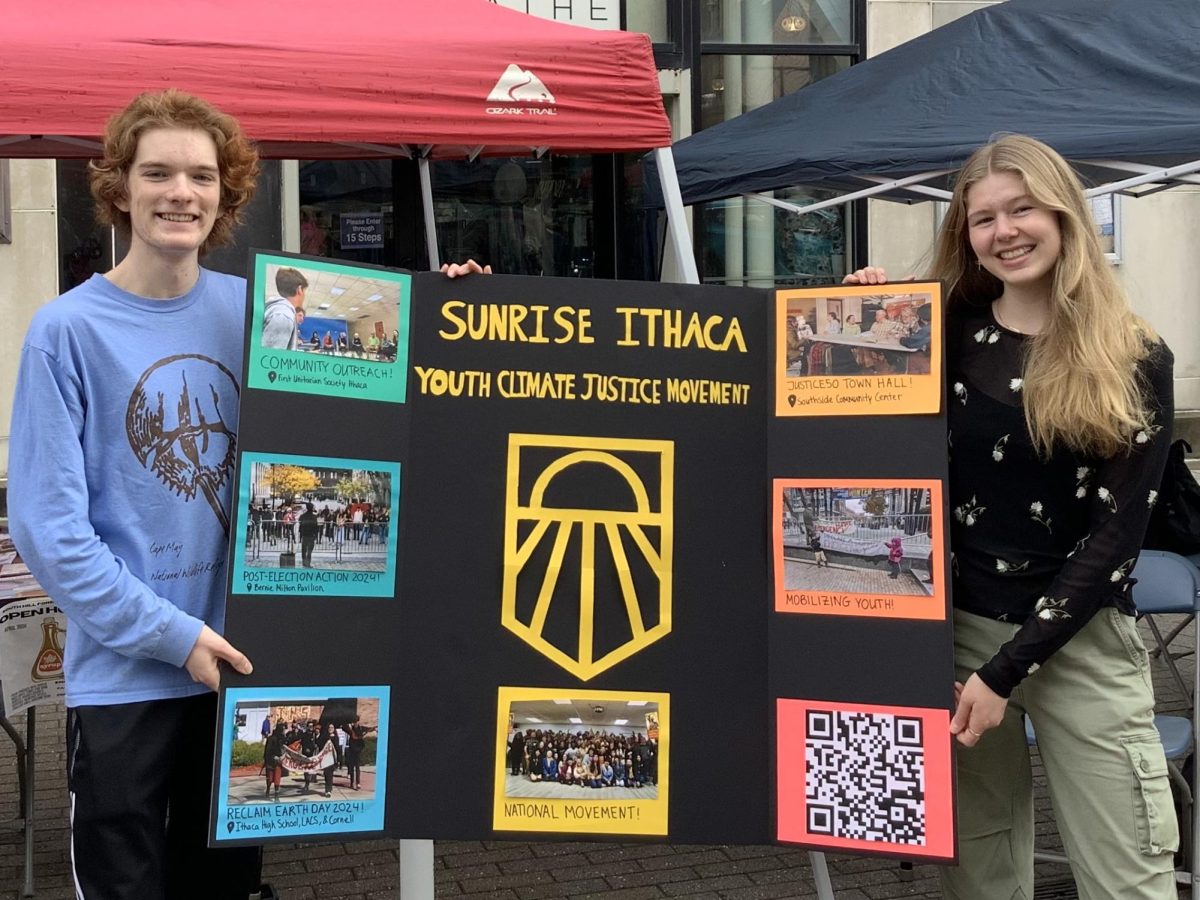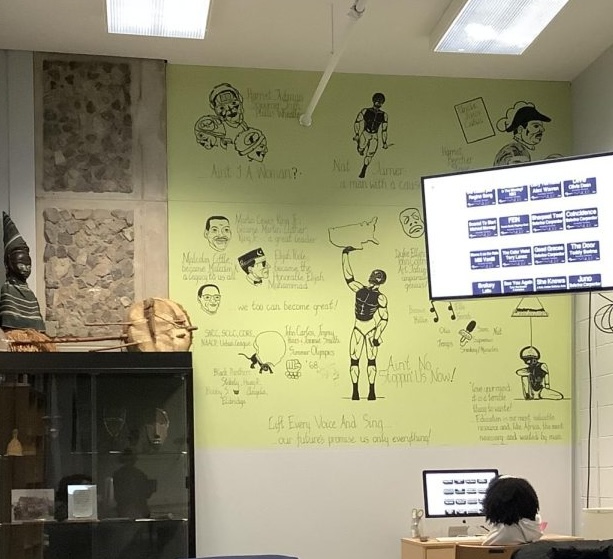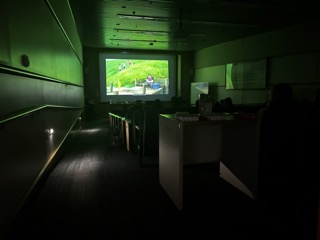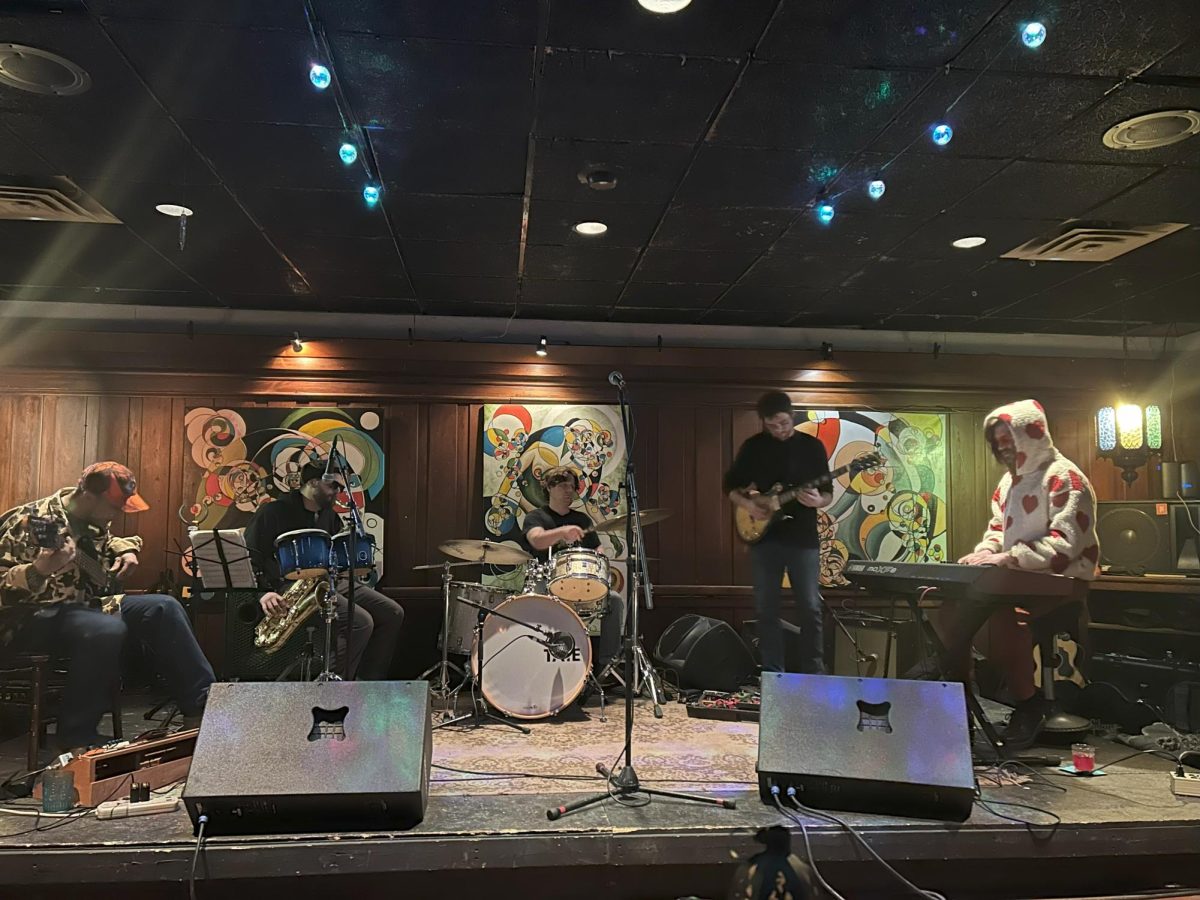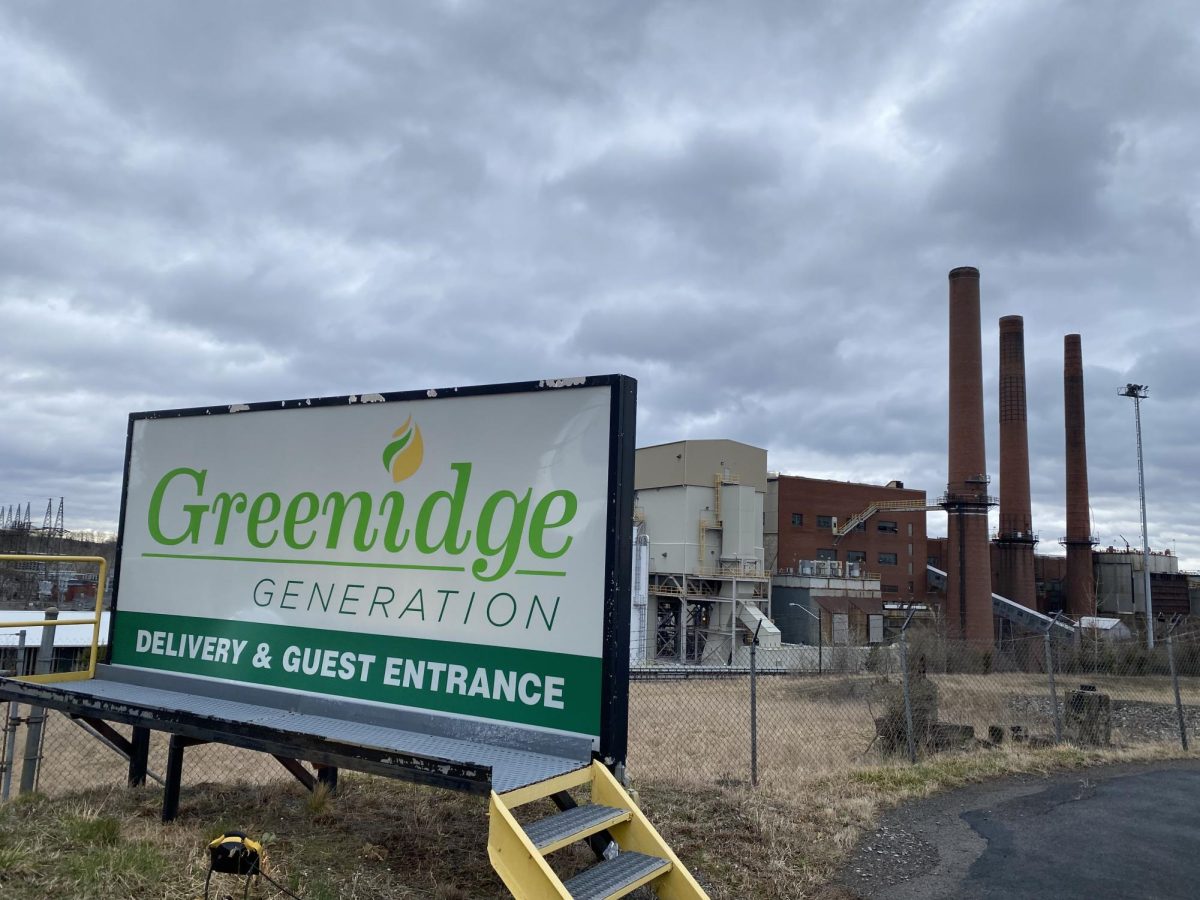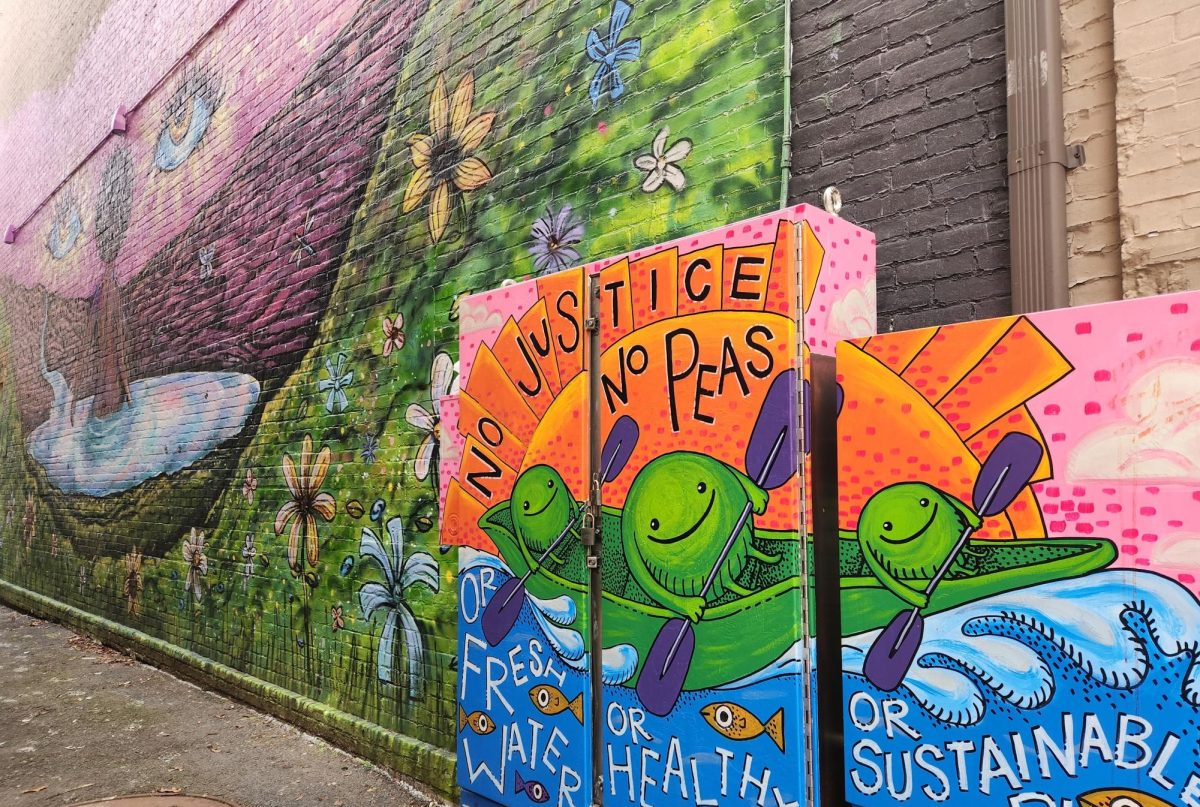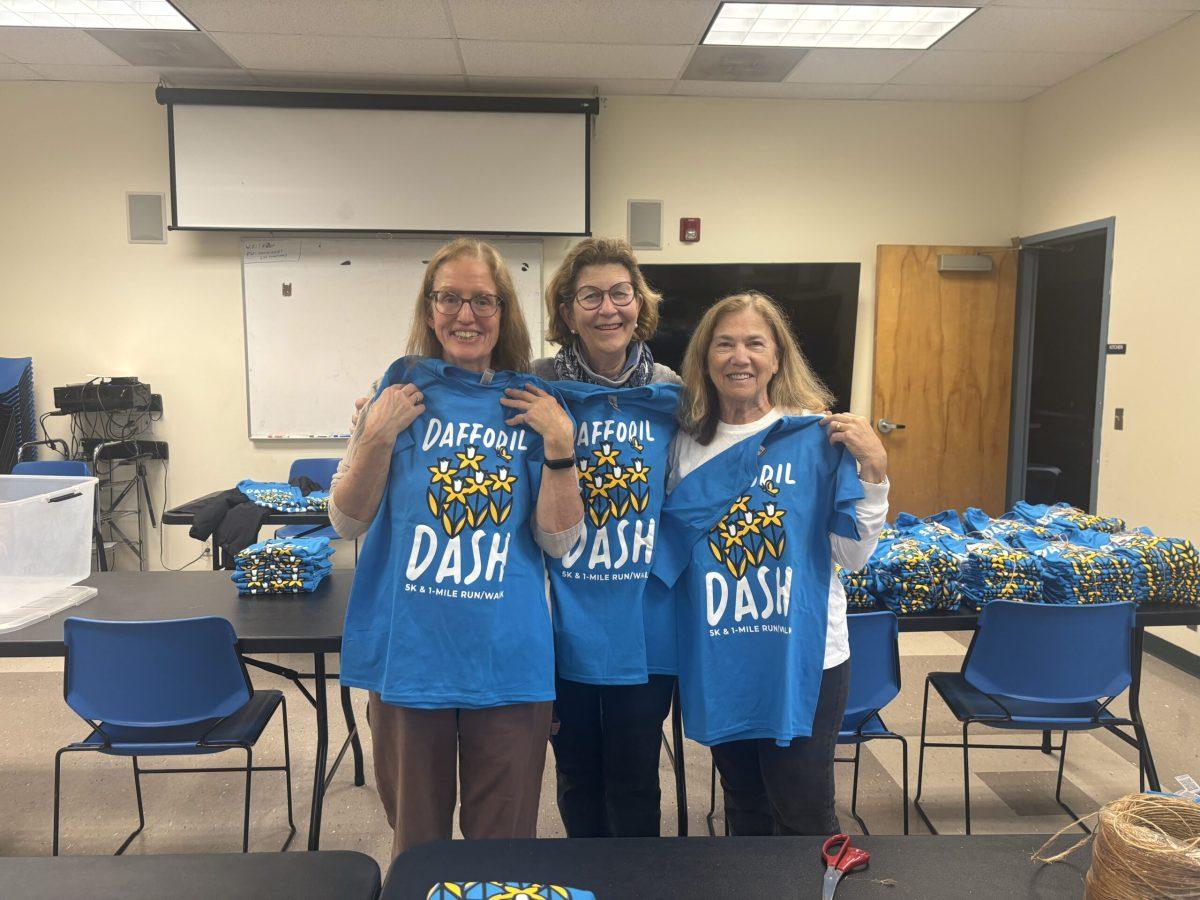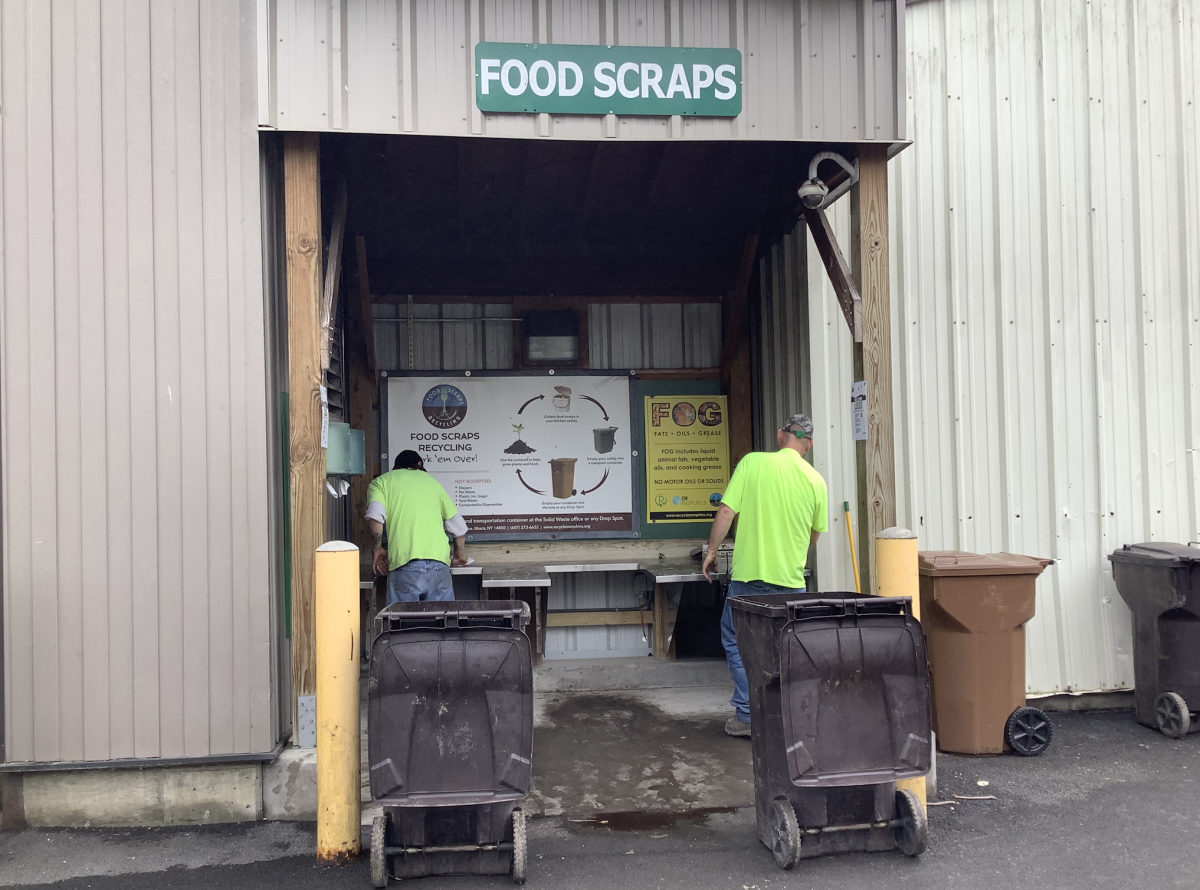Ithaca native Ava Holmes brought her class, From Bean to Bar, back from Peru just in time for Valentine’s day. The three sold-out workshops, held on Feb. 8, Feb. 10, and Feb. 12 at GreenStar Co-op, walked attendees through chocolate production while touching on the history and socio-environmental effects of cacao and chocolate.
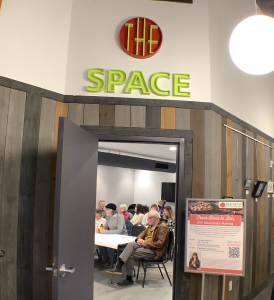
According to Holmes, “Chocolate is what unites the world. It’s like drinkable or edible love… but, for sure, the story behind the curtain of chocolate is bittersweet.”
Cacao Center
Holmes is co-founder of Cacao Center, an educational center located in Puerto Maldonado, Peru. Collaborating with locals, the center provides chocolate-based tourist experiences with a conservationist message. They also work to reforest damaged jungle and teach cacao farmers about sustainable farming methods.
“I was down in Peru visiting a girlfriend who does conservation, she had a project on cacao, and I just fell in love,” Holmes reflected. “And I met the father of my child there, too. So, it was just this love experience.”
Prior to Cacao Center, Holmes co-founded Fashion For Conservation. She attributes her values of environmentalism to growing up embedded in Ithaca’s green culture.
“The reason I felt like I was interested in fashion is because it was a voice for conservation. And chocolate is exactly the same… you can tell a story through it.”
The story of chocolate
Dr. Jordan LeBel of Concordia University traced chocolate’s allure back to Montezuma’s harem and extensive consumption of chocolate, a reputation that persisted through French aristocracy and into humoral medicine in the 1800s.
“To tell the story of chocolate as a component in the narrative of romance… the elements are there throughout history,” LeBel said. “So savvy marketers can also use those and keep the mental association growing.”
While chocolate’s love association remains the strongest, LeBel expressed that societal shifts like increased environmental and humanitarian concerns causes perception and marketing changes.
“Can we start talking about the reality of cacao farmers?” he asked. “Consumers are becoming more aware that with every food choice, they’re expressing a portion of their values. More and more don’t trust the agrifood system.”
Holmes echoed the contemporary significance of chocolate, citing Mayan mythology. She stated, “In the words of the Mayan people, they say one day the world will be about to fall apart… people will be at war, and the structure of our ecosystem will be about to fall apart. And in that moment, cacao will spread to all corners of the world and re-warm people’s hearts and bring them back together… that timeline of the myth is lining up almost exactly with where we are right now.”
From Bean to Bar and beyond
Beginning with a mini-tasting, attendees then peeled fermented cacao beans and filled molds to temper and take home. Holmes taught, answered questions, and shared anecdotes throughout.
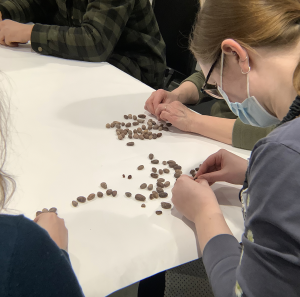
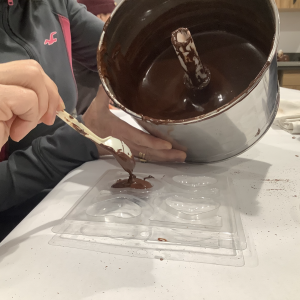
Liz didn’t have chocolate-making experience before the class. Inspired, she said she may buy her own cacao to use her newfound knowledge at home.
With plans of opening a chocolate house in downtown Ithaca, Holmes hopes to bring more healing, warmth, and love along with new experiences.
“I’m so excited to connect Ithaca with this plant medicine in a way that’s very specific to Ithaca. We’re using cacao in this exciting, sexy, playful lens into the world of sustainable farming, sustainable living, and ultimately sustainable loving… You know, like what would Ithaca look like in a chocolate bar?”






